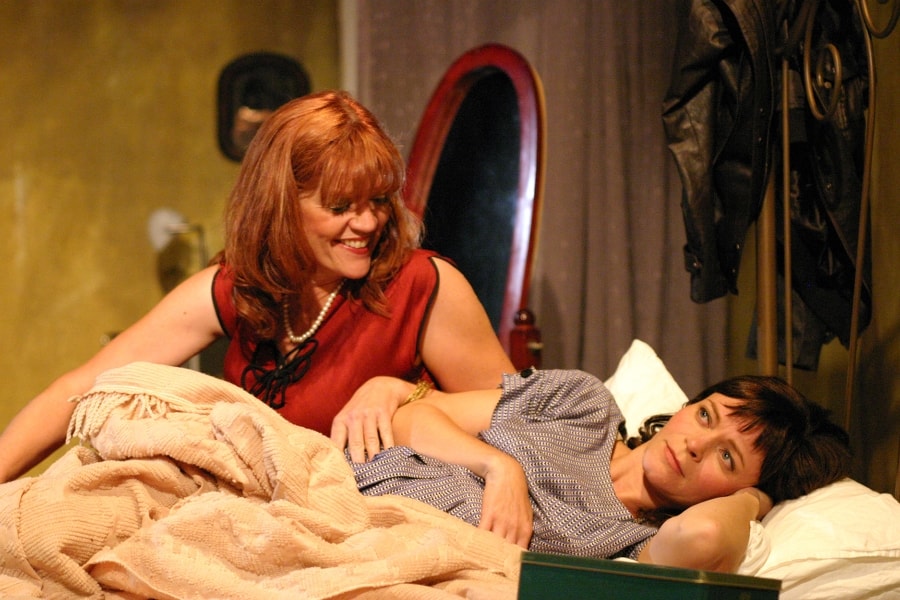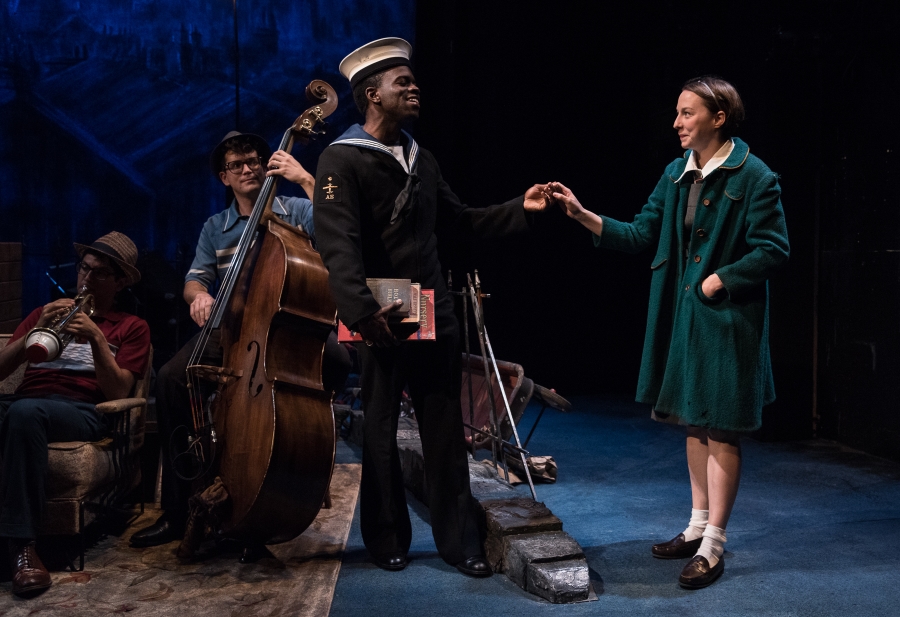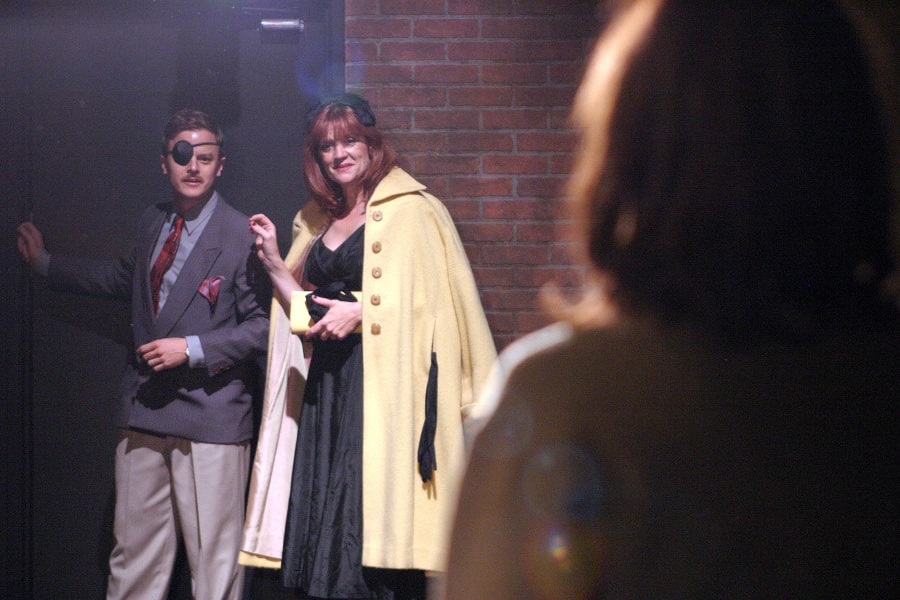Austin Pendleton was 21 years old when he first saw Shelagh Delaney’s play A Taste of Honey, in the 1960 Broadway production starring Angela Lansbury and Joan Plowright. It’s probably safe to say that his was not a typical reaction.
“A Taste of Honey gave me something I’d never had: a panic attack,” says Pendleton.
After the performance, he hid in the restroom at the Lyceum Theatre feeling terrified and unaware of what was happening. Fifty-five years later, he is now helming a production of the play at the Pearl Theatre Company (Sept. 6-Oct. 30), the play’s first New York production since a Broadway revival in 1981. And it’s giving him a fresh chance to figure out what about Delaney’s play led him to cower in a Broadway men’s room 56 years ago.
“I never actually thought about directing it, I just loved it,” says Pendleton, apparently well over his panic attack, adding, “It had this profound effect on me when I saw it.”
On the opposite coast, the Odyssey Theatre Ensemble of Los Angeles is also mounting this seldom-produced play (Sept. 24- Nov. 27), directed by Kim Rubinstein. For her part, Rubinstein says she was deeply affected by the play’s film adaptation, which she saw when was 12—so much so that she reenacted scenes from the story accompanied by songs on a jukebox in her basement as a teenager. She has carried a copy of the script around with her since.

Youth is a running theme with Honey: The play, which paints a grim if not entirely bleak picture of working-class life in postwar Northern England, rocked the boat when it premiered at Joan Littlewood’s Theatre Workshop in London in 1958, not only because of the way it addressed race and sexuality onstage but because the playwright was a mere 19 years old. It was Delaney’s debut, which she legendarily penned in a two-week span, and it joined an emerging genre of kitchen-sink drama, one aftershock of tremors first caused by John Osbourne’s Look Back in Anger in 1956.
But does its tale of unwanted pregnancy and unconventional family structure still resonate more than 50 years later? Rubinstein says she finds the play’s perspective on class to provide a mirror for fears of the middle class in America today, though with a relevance “that isn’t smack-dab direct.” And though the play is indeed steeped in sociopolitical commentary, Pendleton says, “Her writing doesn’t make heavy social points about it—it just all seems natural.”

The resurgence of the play has critics reaching for comparisons of the play’s early audiences with those of today, speculating on how its depiction of interracial relationships and its treatment of homosexuality may land differently now.
“A couple of the reviews of this have said that those relationships are not a shocking now as they would have been at the time,” concedes Pendleton. “But they’re kind of missing the point; those kind of relationships were not shocking then. What was so fresh about it was that she wrote about all these things, and the way she wrote about them was so natural that there wasn’t anything shocking about it. That was why the play was so marvelous.”
Despite the play’s austere backdrop, the play has humor and lightness that emerge, particularly in the witty banter between 17-year-old Jo and her free-spirited mother Helen. The play also calls for an element of sound, noted simply as just “music” in the stage directions, that lifts the plot. For this, both Pendleton and Rubinstein took a page from Littlewood’s 1958 production, which included musicians onstage.
“At the Odyssey, we couldn’t afford to hire more than one musician—so we have a bass,” says Rubinstein. The actor playing Jimmy also plays the drums in one scene, and the actress portraying Helen, a talented jazz saxophonist, joins in and puts her instrumental talent to use. Meanwhile at the Pearl, a jazz trio made up of guitar, trumpet, and bass lives onstage for the duration of the show, infiltrating the set, tossing props, and interacting with the characters.
“The play has this dual quality to it,” says Pendleton. “On the one hand, it is bleak and naturalistic. And on the other hand, it is kind of jazzy and buoyant, and the jazz trio helps to bring that part of it out.”
Pendleton’s production in particular excavates bits of lyrics found in Delaney’s text, and the references to songs in the script were then riffed on to build a score, including the intro song, “A Taste of Honey,” written by Bobby Scott and Ric Marlow for the original Broadway production and memorably covered by many, including the Beatles.
For Rubinstein, the music selections went further than the script. The one-man band is supplemented by a portable record player in the second act, carried by Jo, which from she booms hits by Petula Clark, Little Richard, and Doris Day. The set also occasionally transforms from the drab apartment into a dance hall of the era.
“The characters keep trying to rise toward human dignity,” says Rubinstein. “One of the ways they do that is through dreaming. For me, the dance hall and the music is a way in which they get relief from the challenges of their everyday life, and they go into a sort of fantasy with the music.”

It’s not just the dancing tunes or Delaney’s dynamic mother/daughter duo but the cyclical fear that binds each of the characters together, and which draws the audience in. This universal fear of abandonment is perhaps what struck a chord with both of the directors years ago.
The play is a “fugue of abandonment,” says Pendleton. And while wrapped up in the characters and the enticement of jazz, he says the underlying theme of abandonment is probably what ambushed him into a bout of panic. “Thanks to this interview I’m beginning to understand all of this,” says Pendleton, connecting his long-ago panic attack to this abandonment theme.
“All the way through the play, there is a fear that people are going to leave,” agrees Rubinstein. “That is the most poignant part of this piece: Helen is trying to make it as a single mother, but she also abandons her daughter at these unbelievable moments. So there is also a kind of narcissistic quality about trying to survive.”
So why has A Taste of Honey languished on the shelf for so long? According to Pendleton, the rights to the play were held for decades, and released only after Delaney’s death in 2011. But these productions on either coast might be the start of a new era of Delaney onstage.
“It has a small cast, the audience likes it, and no one has seen it,” says Pendleton. Rubinstein adds, “I think it is an interesting rediscovery.” She also noted that the theatre received many calls prior to opening from patrons in eager anticipation of seeing the little-seen play.
Perhaps when new audiences get a taste of Honey, it will leave a profound aftertaste with them too.


